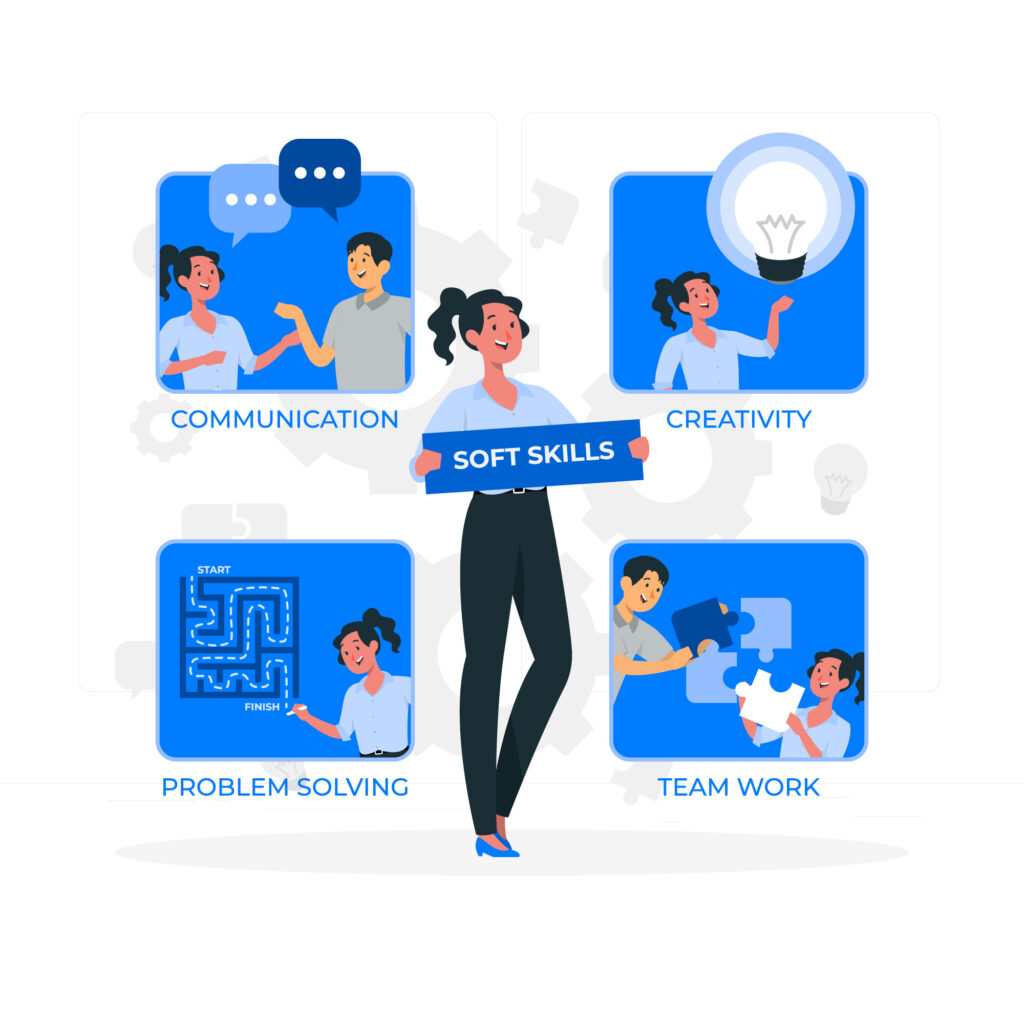The Power of Soft Skills: Why They Matter in Today’s Job Market
Table of Contents
ToggleIntroduction
What are Soft Skills?
Before diving into their significance, let’s first define what soft skills are. Soft skills, also known as people skills or interpersonal skills, encompass a wide range of attributes that are not tied to specific technical knowledge or expertise. These skills relate to how you interact with colleagues, clients, and superiors and include qualities such as:
- Communication: The ability to express ideas clearly and effectively, both verbally and in writing.
- Teamwork: The capacity to collaborate and work harmoniously with others toward a common goal.
- Problem-Solving: The skill to analyze challenges, identify solutions, and make informed decisions.
- Adaptability: The capacity to adjust to new situations and handle change with grace.
- Time Management: Efficiently managing your time to meet deadlines and prioritize tasks.
- Leadership: The ability to inspire and guide others to achieve goals.
- Emotional Intelligence: Understanding and managing your own emotions and being attuned to the emotions of others.
- Conflict Resolution: The skill to resolve disagreements and conflicts in a constructive manner.
These skills are often considered inherent to a person’s personality, but they can also be developed and refined over time through training and experience.
The Changing Landscape of the Job Market
Automation and Technology
Collaboration and Globalization
Customer-Centric Approach
Entrepreneurial Mindset
The Impact of Soft Skills on Career Success
Having a strong foundation of soft skills can significantly impact your career success. Here’s how these skills can benefit you in today’s competitive job market:
- 1. Improved Communication: Effective communication is crucial in every role and industry. Being able to convey ideas clearly and listen actively can lead to fewer misunderstandings and more productive interactions with colleagues and clients.
- 2. Enhanced Collaboration: Teamwork is often essential to accomplish complex projects. Soft skills like collaboration and conflict resolution facilitate smoother teamwork, leading to better outcomes and stronger professional relationships.
- 3. Problem-Solving Abilities: In a rapidly changing world, problem-solving skills are highly valued. Employees who can identify challenges and propose solutions are assets to their organizations and can take on leadership roles.
- 4. Adaptability to Change: The ability to adapt to new technologies, processes, and industry trends demonstrates your agility and ensures that you remain relevant in evolving industries.
- 5. Career Advancement: Soft skills are often the differentiating factor in promotions and career progression. Effective leadership, emotional intelligence, and strategic thinking can open doors to leadership roles and greater responsibilities.
- 6. Job Satisfaction: Soft skills not only benefit your career but also contribute to job satisfaction. Positive interactions with colleagues, clients, and superiors can create a more fulfilling work environment.

The Role of Soft Skills in Recruitment
In addition to benefiting individuals in their careers, soft skills also play a critical role in the recruitment process. Employers are increasingly recognizing the value of soft skills when evaluating candidates. During interviews and assessments, recruiters look for evidence of soft skills to determine whether a candidate is not only qualified for the role but also a good cultural fit for the organization.
Recruiters may ask situational or behavioral questions to assess a candidate’s soft skills. For example, they might inquire about how a candidate has handled a challenging team project or resolved a conflict with a colleague. These questions allow recruiters to gauge communication, teamwork, problem-solving, and adaptability skills.






